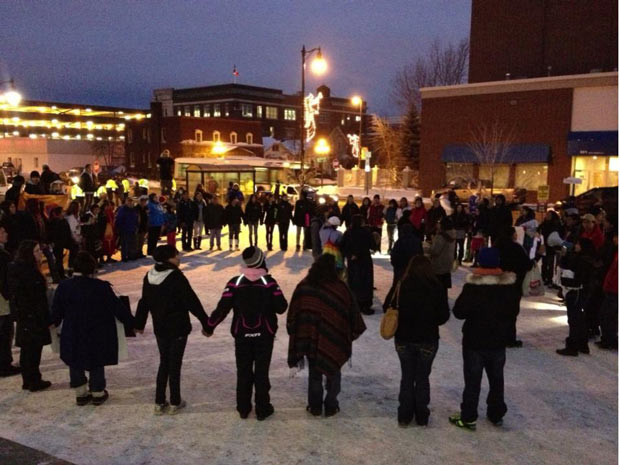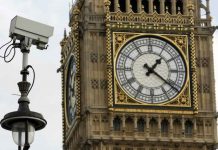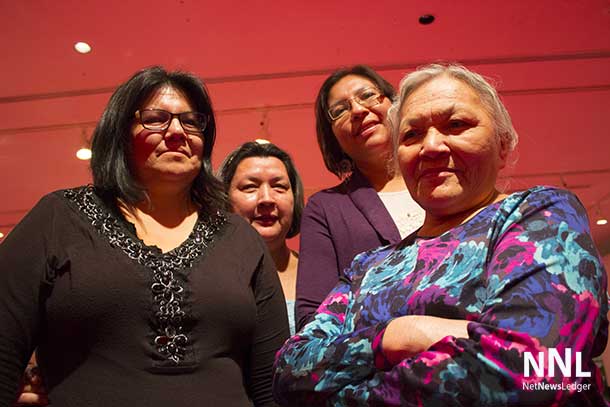
VANCOUVER – “The epidemic of violence against indigenous women and girls in Canada is a national problem, and it demands a national inquiry,” said Meghan Rhoad, women’s rights researcher at Human Rights Watch. “The Harper government should treat these issues with the urgency they deserve and appoint a national commission of inquiry without further delay.”
“Canada’s federal government should establish a national commission of inquiry into the country’s hundreds of missing and murdered indigenous women and girls,” continued Rhoad. This recommendation follows today’s release by the British Columbian government of the final report from the provincial Missing Women’s Commission of Inquiry.
Epidemic of violence against indigenous women
“The stories shared in this report are heart-wrenching and absolutely appalling, particularly given this is only a small sample of the conditions and experiences of Indigenous women, girls and families across our territories,” said AFN National Chief Shawn Atleo. “I commend the courage of all those who’ve shared their stories, and continue to urge others aware of violence or misconduct to speak up. We cannot accept violence against or among our peoples. We owe it to the families who’ve lost loved ones, and to our children and future generations to achieve safe and secure communities for our kids to learn, grow and thrive.”
“The endemic violence against Indigenous women and girls is a human tragedy that affects all Canadians,” said Liberal Leader Bob Rae. “While the Conservatives have long ignored Liberal calls for a full public inquiry into this matter, passing this motion is an important step toward finding answers and preventing the perpetuation of this victimization.”
The Liberal Opposition Day Motion, which will be debated in the House of Commons tomorrow, calls for the establishment of a House of Commons special committee with the mandate to conduct hearings into Canada’s missing and murdered Indigenous women and girls. Furthermore, it requires the committee to report its findings and recommendations back to the House of Commons no later than February 14, 2014.
The issue of violence against women, here in Thunder Bay came to the forefront recently with the reported assault and abduction of an Aboriginal woman in late December.
Chief Peter Collins Speaks at Idle No More Rally
In Thunder Bay on February 14 2013 there will be a walk to remember missing and murdered Aboriginal women.
The provincial inquiry examined police investigations into the murders and disappearances of women from the Downtown Eastside of Vancouver between 1997 and 2002. A disproportionate number of the victims were indigenous. The Native Women’s Association of Canada documented 582 cases of missing and murdered indigenous women and girls in Canada as of March 2010, with 39 percent of the disappearances and deaths occurring since 2000. The number of cases is undoubtedly higher today, but there is no data available since the government cut funding for the organization’s database and has yet to launch its own database with the capacity to track the number of cases in which the victim is indigenous.
According to Statistics Canada, indigenous women are almost seven times more likely to be murdered than non-indigenous women in Canada: 5.4 indigenous women per 100,000 died due to homicide between 1997 and 2000, compared with 0.8 per 100,000 for non-indigenous women in Canada.
The federal opposition, human rights organizations, and indigenous groups, including the Native Women’s Association of Canada, the Assembly of First Nations, and the December 6 Coalition, have recommended that the government launch a national commission of inquiry into the overwhelmingly high levels of missing and murdered indigenous women and girls in Canada. Harper’s conservative government has repeatedly declined to act on this recommendation.
Public national inquiries allow for impartial investigation into an issue of national importance. In 2008 under a Harper government, the Truth and Reconciliation Commission of Canada was established to investigate and expose the operations of Indian Residential Schools and provide reparations to those affected.
The United Nations Committee on the Elimination of Discrimination against Women announced in December 2011 that it was launching an inquiry into missing and murdered indigenous women in Canada. In 2008, the committee called on the government “to examine the reasons for the failure to investigate the cases of missing and murdered aboriginal women and to take the necessary steps to remedy the deficiencies in the system.”
“A national inquiry is the next step towards identifying why the violence is happening and what needs to be done to stop it,” Rhoad said. “The government has a clear duty to count the number of missing and murdered indigenous women and to address violence against them.”
Human Rights Watch has conducted research in northern British Columbia on police treatment of indigenous women and girls, including how the police respond to reports of violence and disappearances involving indigenous victims. A report on the research findings will be released in early 2013.
Government and civil society reports have detailed how colonialism, the residential school system, and entrenched social and economic inequalities have made indigenous women and girls particularly vulnerable subjects of racialized and sexualized violence in Canada.
Two major government studies on the topic – a 2011 report from the Standing Committee on the Status of Women and a 2012 report from the Federal, Provincial and Territorial Missing Women Working Group – failed to include a recommendation for a national commission of inquiry.
This final report of the British Columbia Missing Women’s Commission of Inquiry, released to the public today, also omits that recommendation.
Human Rights Watch said that many of the same organizations that have called for a national commission of inquiry have been critical of the British Columbia inquiry for its limited terms of reference, exclusion of community members from funding and equal participation in the inquiry process, and for structural flaws, including both conflict of interest issues with inquiry staff and a lack of adequate and culturally sensitive procedural protections for vulnerable witnesses.
“A national inquiry should prioritize the meaningful involvement of indigenous groups and representatives of the families and communities that have been affected,” Rhoad said. “British Columbia’s Missing Women’s Commission of Inquiry should be a learning opportunity for government and civil society about what does and does not work for an inquiry addressing violence against a marginalized community.”






